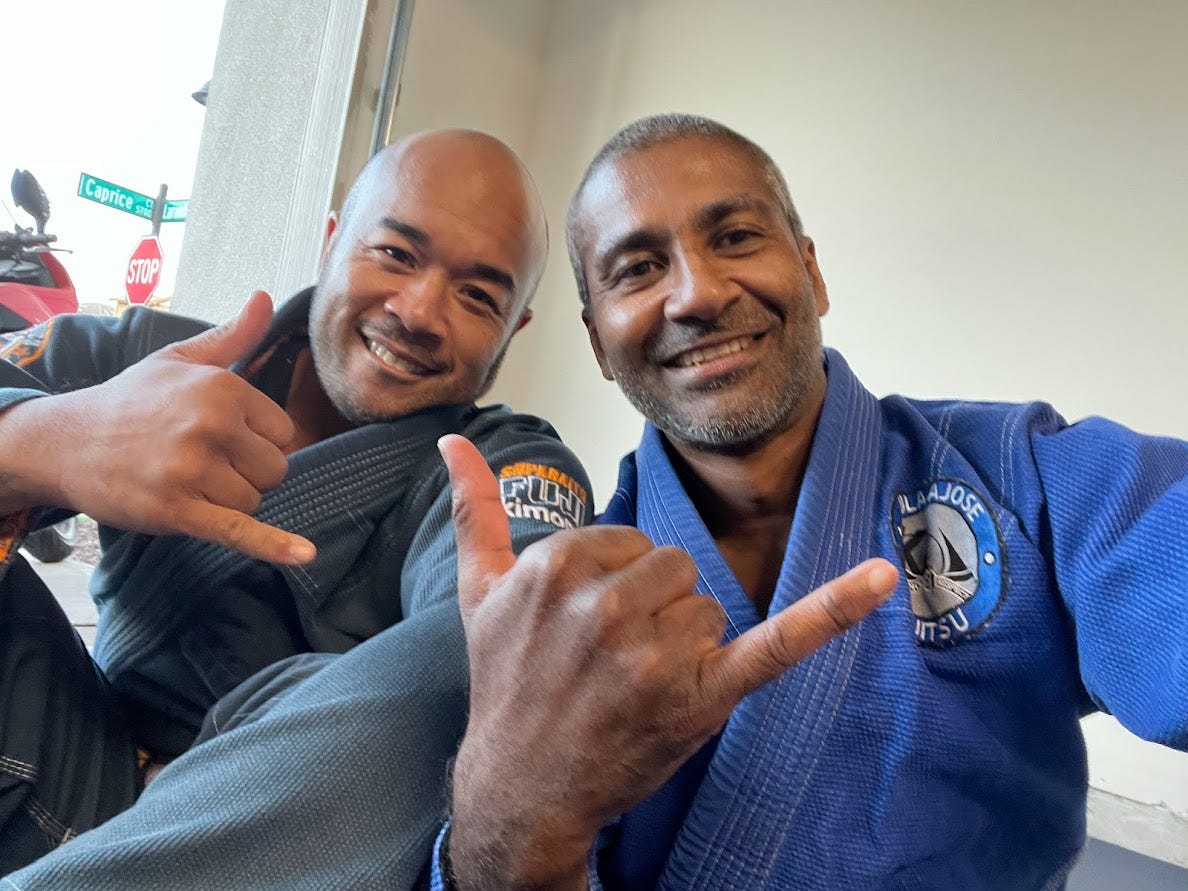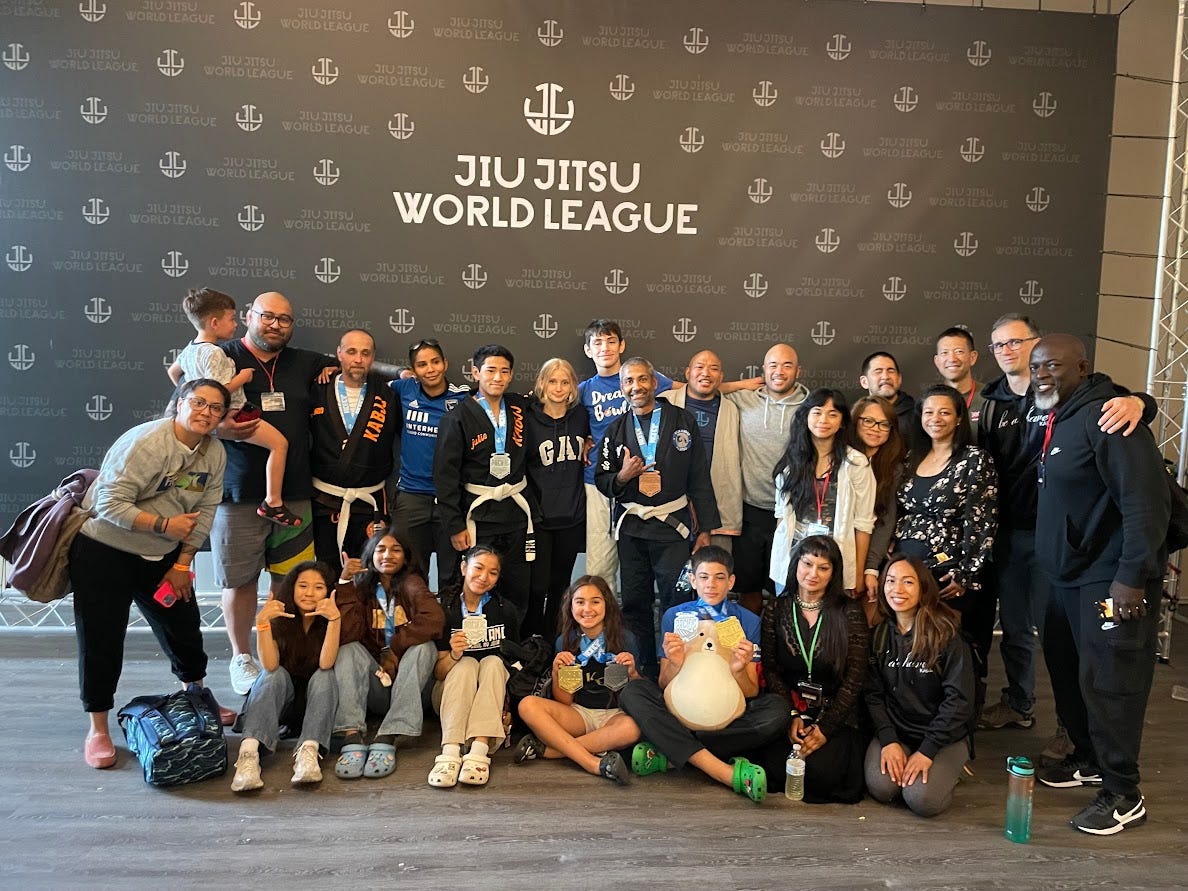Jiu-Jitsu and the Support System
Brazilian Jiu-Jitsu, often called the "gentle art," is a paradox. While it might be gentle in its techniques, leveraging skill over strength, it's unyieldingly brutal on the ego. For those who step onto the mats, it often becomes a journey of self-discovery, unearthing vulnerabilities, and challenging one's self-perception.
The Unyielding Mirror of Jiu-Jitsu
Every session in Jiu-Jitsu, especially for beginners, is akin to staring into a mirror that reflects not just our physical limitations but our mental and emotional ones as well. It's not merely about how well you can execute a move, but how you grapple with feelings of inadequacy, frustration, and, at times, desolation.
However, Jiu-Jitsu is not an isolated journey. The community - your fellow practitioners - play a crucial role in shaping your experience. They become your sounding board, your mentors, and your cheerleaders. And why? Because they've been through the same tumultuous journey.
The Power of Shared Struggles
One evening, during an intense sparring session, I was paired with a fellow student who was newer than me to the art. Throughout the roll, I consciously maintained control, establishing dominant positions but refraining from submitting him. As the buzzer marked the end of the round, I saw his chest heaving, tears forming, and an overwhelming sense of frustration painted across his face.
In his eyes, I saw a reflection of my past self. I remember those early days, feeling lost in the sea of techniques, trapped under more experienced partners, and the suffocating weight of my insecurities. I approached him, and we sat down, sharing feelings, exchanging stories, and leaning on each other for support. Not only did I share techniques to improve his game, but others on the mat joined our conversation, validating his feelings, sharing their early struggles, and emphasizing that he wasn't alone. It became a communal moment of vulnerability, empathy, and camaraderie.
When Life Off the Mats Teaches Us
Contrast the supportive ambiance of the dojo with the outside world, where the dynamics can be starkly different. After my undergraduate studies, I joined a startup, eager to apply my knowledge and build my career. During my time there, I decided to pursue further studies at my dream university, Berkeley. I required recommendation letters, and considering my dedication and hard work at the startup, I approached one of the VPs for a recommendation.
His response was unexpected. He asked me to draft my own recommendation letter, assuring he'd review and sign it. Days turned into weeks as the letter sat untouched on his desk, despite the looming application deadline and my repeated reminders. I managed to submit my application on time with other references, thankfully. But, when he learned of my acceptance into Berkeley, he jokingly remarked, "Congratulations on getting into Berkeley, no thanks to me." It was a profound lesson in power dynamics and the importance of humility.
Yet, life wasn’t done teaching me. A few weeks later, another VP, upon hearing my impending departure for grad school, commented, "I guess you’ll be working for my son one day. He’s attending Stanford!” The implication was clear - no matter my achievements, I would always remain inferior in his eyes. These experiences, while painful, provided valuable insights into the kind of leader I did NOT want to become.
Drawing Parallels and Lessons
Jiu-Jitsu, in its essence, celebrates humility, resilience, and community. It continually reminds us to uplift, support, and guide. Whether it's helping a frustrated newcomer on the mats or mentoring a junior in a professional setting, it emphasizes the power of empathy and kindness.
Drawing from both worlds, I've realized that life is about the journey, not the destination, just as in Jiu-Jitsu. Along the way, it's the connections we make, the support we provide, and the humility we practice that truly define our legacy.


